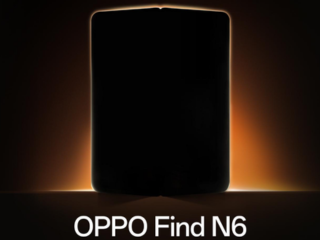- Home
- Internet
- Internet Features
- Is India’s Online Jewellery Market Mature Enough to Support Niche Players?
Is India’s Online Jewellery Market Mature Enough to Support Niche Players?

Online jewellery shopping has been slowly growing in India over the last few years. Companies like BlueStone are becoming more recognisable names, while Caratlane, another early pioneer, was acquired last year by Titan’s jewellery arm Tanishq. And while these specialist companies have been growing, Amazon and Flipkart, the bigwigs of the Indian e-commerce space, both have jewellery sections as well.
But is the market now developed enough to support specialist plays such as CharmsDay, a company that specialises in making silver charm bracelets? Started about a year ago by Parul Nagpal, who used to be the VP-Marketing at BlueStone, CharmsDay is focussing on a small niche within the larger jewellery space, and it's been operational actively for just a little over a month now.
Gadgets 360 chatted with Nagpal to understand more about the state of online jewellery in India, why smaller cities represent a better opportunity than the big metros, and what new technologies are coming up in the jewellery industry.
"We got started around this time last year, but we launched the website about a month ago," says Nagpal. "It's backed by Liali, a Dubai-based jewellery company. They wanted to enter the Indian market and we were doing ideation on what product to come out with, and we traveled around the world to figure out what India is missing."
![]()
The result was CharmsDay. "Fine jewellery would have been an obvious choice, but we wanted to do something different," says Nagpal. "CharmsDay is an attempt to allow women to wear jewellery that is a little more meaningful than just pretty motifs. If you look at the jewellery market in India or even the marketing that most jewellers do, it's about how beautiful the product is and how it will look on you."
"We knew that it meant much more than just looking pretty, jewellery had moments attached to it, occasions. Internationally, charms are a very big concept, but there was a very clear gap in the Indian market," she adds.
The way the concept works is that customers can buy an empty bracelet chain, like an "empty canvas", and then customise it by adding charms that the company sells, to make "your own story". CharmsDay is offering next day delivery for the metros, and two to three days for the tier 2 cities; for smaller towns, it can take up to five days, Nagpal says.
"These charms mean something to you, and they mean different things to different people," says Nagpal. "I heard somebody got a bird charm gifted on their graduation, 'you're a free bird now'. To me it would mean taking flight, reaching new heights. We have a floral collection, [and] a very playful emoji collection [of characters] that you would find on social media."
![]()
Although CharmsDay is just getting its feet off the ground, Nagpal has been involved with the jewellery industry for some time now, and she says that it's a business that has now matured in India.
"The market has definitely been created. The Caratlane acquisition by Tanishq shows that the offline market is taking it seriously," says Nagpal. "The market [of consumers] has become quite reasonably comfortable with buying any category online."
That said, Nagpal believes that we are due for a fresh round of startups in this space, now that the basic concept of selling jewellery online has been established. "The e-commerce pie in jewellery is only growing, but the offering is not very wide," she says, adding, "there are only two-three names that are leaders and trusted. That's why we came up with something like CharmsDay, and I think that a lot of other people will see this opportunity, and I hope so too because we will have more people to sell this category."
A lot of the interest in online jewellery comes from smaller cities, Nagpal tells us, adding that even for CharmsDay, which she sees as a very urban product, the first few orders were from cities like Chandigarh, Patiala, and Jaipur. "Smaller towns tend to be more receptive towards anything new," says Nagpal. "They are experimenters, and it feels like they don't need the physical experience as much as people in metros do."
![]()
Of course, that's also partly because most retail brands still focus on the major metros, so people in smaller towns have fewer access points for physical retail. And even CharmsDay is looking at entering the offline market a year down the line, with a focus on Delhi-NCR, Mumbai, and Bengaluru, for pretty much the same reason.
For now though, Nagpal believes that even as e-commerce opens up a lot of opportunities for the jewellery industry, other tech ideas aren't necessarily making a difference. For example, she believes that physical try ons have much more value than augmented reality trials. "In all honesty, it [augmented reality] is more exciting to marketeers than it is to customers," she says. "The experience is not nearly seamless enough, in earlier times you had to scan QR codes and now you have to use these apps, but it just didn't make sense to me, I don't think it adds too much."
For details of the latest launches and news from Samsung, Xiaomi, Realme, OnePlus, Oppo and other companies at the Mobile World Congress in Barcelona, visit our MWC 2026 hub.
- Samsung Galaxy Unpacked 2026
- iPhone 17 Pro Max
- ChatGPT
- iOS 26
- Laptop Under 50000
- Smartwatch Under 10000
- Apple Vision Pro
- Oneplus 12
- OnePlus Nord CE 3 Lite 5G
- iPhone 13
- Xiaomi 14 Pro
- Oppo Find N3
- Tecno Spark Go (2023)
- Realme V30
- Best Phones Under 25000
- Samsung Galaxy S24 Series
- Cryptocurrency
- iQoo 12
- Samsung Galaxy S24 Ultra
- Giottus
- Samsung Galaxy Z Flip 5
- Apple 'Scary Fast'
- Housefull 5
- GoPro Hero 12 Black Review
- Invincible Season 2
- JioGlass
- HD Ready TV
- Latest Mobile Phones
- Compare Phones
- Apple iPhone 17e
- AI+ Pulse 2
- Motorola Razr Fold
- Honor Magic V6
- Leica Leitzphone
- Samsung Galaxy S26+
- Samsung Galaxy S26 Ultra
- Samsung Galaxy S26
- Asus TUF Gaming A14 (2026)
- Asus ProArt GoPro Edition
- Apple iPad Air 13-Inch (2026) Wi-Fi + Cellular
- Apple iPad Air 13-Inch (2026) Wi-Fi
- Huawei Watch GT Runner 2
- Amazfit Active 3 Premium
- Xiaomi QLED TV X Pro 75
- Haier H5E Series
- Asus ROG Ally
- Nintendo Switch Lite
- Haier 1.6 Ton 5 Star Inverter Split AC (HSU19G-MZAID5BN-INV)
- Haier 1.6 Ton 5 Star Inverter Split AC (HSU19G-MZAIM5BN-INV)












